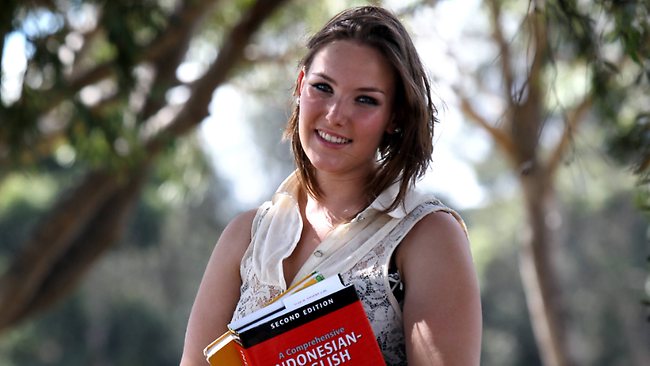Indonesian endangered at La Trobe but not yet extinct
LA TROBE University could rethink its plan to axe Indonesian language study if it finds reasons to do so in Ken Henry's Asian Century report.

LA TROBE University could rethink its plan to axe Indonesian language study if it finds reasons to do so in Ken Henry's Asian Century report.
Arts dean Tim Murray cited low enrolments and competition from other universities as reasons for the proposal not to take any new students of Indonesian from next year.
The proposal is part of a wider effort to make the arts degree bankable in the more volatile market created by funding that follows student demand.
La Trobe says it has too many subject offerings with not enough students, compared with competitor universities in Melbourne.
But Professor Murray said no decisions on the restructuring would be made until August.
And yesterday he left open the possibility of a reprieve for Indonesian should a change in circumstances undermine the case for closure.
"I think (the Henry report) is something that we'll definitely have to take into account," he said.
Last week the Asian Studies Association of Australia urged La Trobe not to close Indonesian before the government had considered the Henry report.
That report, which could be released as early as next month, is expected to say something about education in Asian languages.
Purnendra Jain, president of the Asian studies association, also cited the government's 2006 designation of Indonesian as a "nationally strategic language''.
This requires universities to seek approval before shutting a program.
"The (federal education) department is in contact with La Trobe and understands that the closure of the Indonesian course is currently being considered but a final decision has not been made,'' a spokesman for the department said last night.
Since 2004, six universities have closed stand-alone Indonesian programs, according to the state-of-the-language report by Murdoch University's professor of Southeast Asian studies David Hill.
Professor Murray said: "We take very seriously the notion of Indonesian being a strategic language.
"On the other hand, we take very seriously the fact that our bottom line (is seriously in the red). We have a $4.34 million hole in my budget this year.''
Under the arts faculty proposal, La Trobe would finish teaching the 72 students now enrolled in Indonesian. The university has two full-time teachers and one who teaches the language two days a week.
If the program does close, students keen to start Indonesian might be able to take the subject as a distance unit from the University of New England, courtesy of a broader partnership between La Trobe and UNE.
Students at La Trobe's Bendigo campus training to be language teachers would still be able to take Indonesian. Four of the 72 students of Indonesian now fall into this category.
He pointed out that the language also was offered by the University of Melbourne, Monash and Deakin.
By contrast, he said La Trobe had a "competitive advantage'' in Hindi and hoped to strengthen its institute for India and South Asia. The only other Hindi program in the country is taught by the Australian National University in Canberra.
Professor Hill said a closure of Indonesian at La Trobe could mean that Victoria would lose some of its relative immunity from a nationwide decline in tertiary strength.
Student load at NSW universities fell 52 per cent between 2001 and 2010, compared with a decline of 28 per cent in Victoria, according to the Hill report released in February.
In 2027, Victoria would be the last state to experience the disappearance of Indonesian from its universities if this trend were to continue.
This year and last year, however, there have been tentative signs of a revival of student interest in Indonesian at some universities, including Melbourne.



